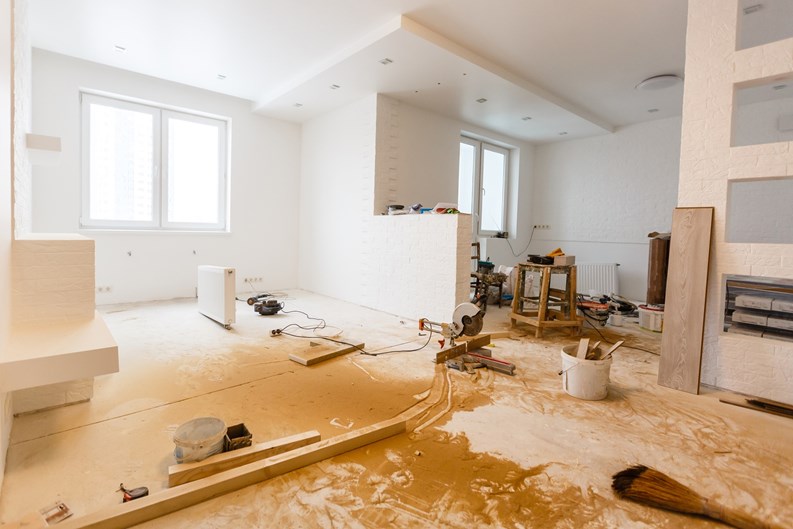A practical guide on rules, restrictions, and approvals for apartment renovations in NYC
Thinking about upgrading your kitchen, bathroom, or flooring in your New York City apartment? If you live in a co-op or condo, there’s one thing you need to do before swinging a hammer: get approval.
Unlike private homeowners, NYC apartment owners must follow strict building rules and get board approval — even for minor renovations. Here’s what every NYC co-op and condo owner needs to know before starting a renovation.
📜 1. The Alteration Agreement: Your Starting Point
Before doing any work, your building will likely require you to sign an Alteration Agreement — a legal document outlining:
- What kind of work is allowed
- The hours and days construction can take place
- Contractor insurance requirements
- Whether the board must approve your architect or contractor
- What permits are needed from the DOB
- Who is responsible for damages
🧠 Tip: Request this document from your management company or co-op board early in your planning.
🔧 2. What Work Requires Board Approval?
You’ll generally need formal board approval if you’re doing any of the following:
- Moving or removing walls
- Replacing plumbing fixtures (sinks, tubs, toilets)
- Electrical work (new outlets, lighting, wiring)
- Changing flooring materials (especially hardwood or tile)
- Installing central A/C or new windows
- Any project that may require a DOB permit
You may not need approval for:
- Painting or wallpaper
- Replacing cabinet doors or knobs
- Installing blinds or curtains
⚠️ Always ask! Even simple work might require notification or approval.
📁 3. Documents You’ll Likely Need to Submit
Each building’s requirements vary, but common documentation includes:
- Floor plans or architectural drawings
- Scope of work (written description of what’s being done)
- Contractor license and insurance certificates (COI)
- DOB permits or plans (if required)
- Estimated start and end dates
- Noise mitigation plan
🏛️ 4. Permits and NYC Regulations Still Apply
In addition to board approval, your project may also require a permit from the NYC Department of Buildings (DOB).
Common permits include:
- Alt-2 for kitchen/bath upgrades
- Plumbing or electrical permits
- Work Permits for layout changes
Your contractor or architect is responsible for filing — but you’re legally responsible if the work is done without permits.
🔐 5. Insurance and Liability: Who’s Covered?
Most co-ops and condos require your contractor to carry:
- General liability insurance
- Workers’ compensation insurance
- Umbrella/excess coverage (for larger jobs)
The building usually requires to be listed as “additional insured” on the policy — and failure to provide this can delay your project.
✅ Pro Tip: Ask your contractor for a “COI” — Certificate of Insurance — that matches your building’s requirements exactly.
🔇 6. Work Hour and Noise Restrictions
In most NYC buildings:
- Work is limited to weekdays (typically 9am–5pm)
- No weekend or holiday work allowed
- Noise-generating work (like demolition or drilling) may be restricted to specific hours
- Hallways and elevators must be protected during deliveries
🧠 Tip: Inform your neighbors about the renovation timeline in advance to avoid complaints.
💵 7. Possible Fees and Deposits
Co-op and condo buildings often charge:
- A renovation fee ($250–$1,000+ depending on scope)
- A refundable damage deposit ($500–$5,000)
- Elevator or freight access reservation fees
- Charges for extended timelines or after-hours cleanup
🛠️ 8. Your Contractor Must Understand NYC Co-op/Condo Rules
Choose a contractor who:
- Has experience with NYC apartment renovations
- Is used to navigating building boards and DOB regulations
- Can work within tight delivery schedules and noise limits
- Knows how to handle clean-up, protection, and documentation
❗ Hiring the wrong contractor can result in violations, fines, and angry boards.
📑 9. Don’t Skip the Final Walkthrough and Sign-Off
Once your renovation is complete:
- Notify the board or building manager
- Schedule a final inspection if required
- Return any hallway protections or borrowed equipment
- Ensure the contractor cleans and hauls away debris
- Get written sign-off from the board or super (if required)
📝 Final Thoughts
Renovating in a co-op or condo can feel like navigating red tape — but with preparation and the right team, your project can be smooth, legal, and board-approved.
✅ Start early
✅ Read your Alteration Agreement
✅ Hire licensed, insured professionals
✅ Get every approval in writing
For more renovation tips, checklists, and NYC-specific homeowner guides, visit RenovateNY.com.

